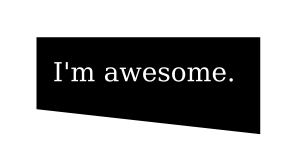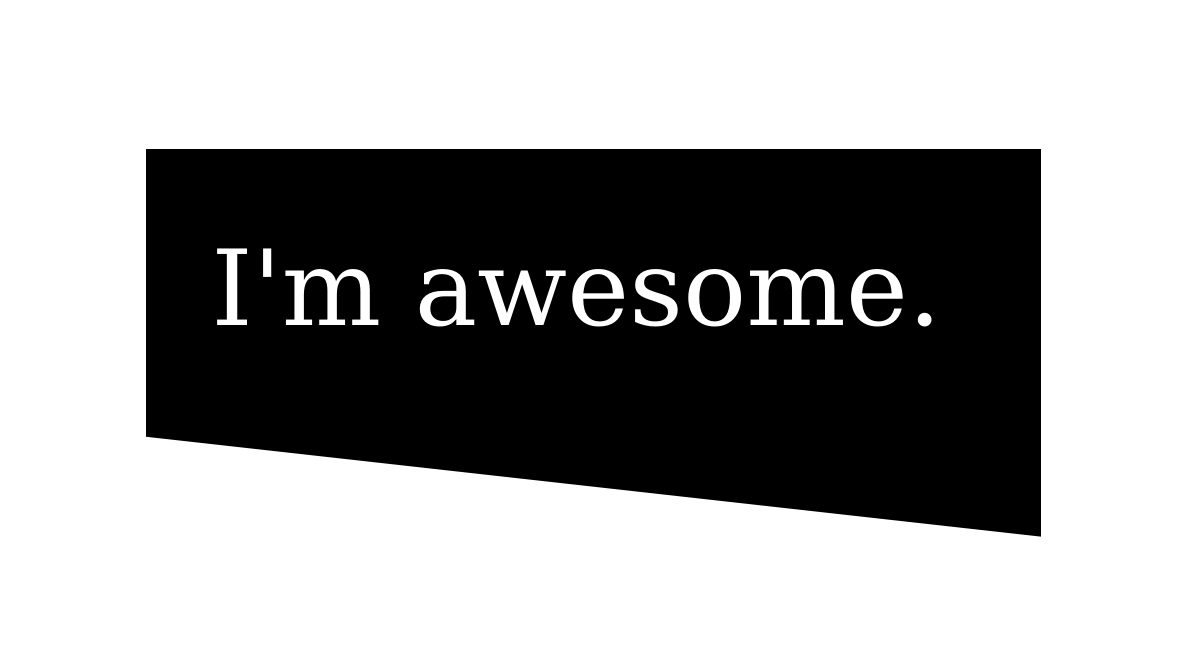 Teacher candidates have asked me this question in a variety of ways. Sometimes, they say they’re not comfortable putting themselves “out there”. Other times, they tell me they’ve never really shared their ideas publicly before, and this makes them nervous. Sometimes, they say they just want to keep their thoughts private. In conversation with experienced teachers, a similar theme has often emerged too. Teacher candidates are not alone in this worry. When we talk about working and serving students in a world where the Internet is the most important medium for literacies learning, even seasoned teachers get a little nervous.
Teacher candidates have asked me this question in a variety of ways. Sometimes, they say they’re not comfortable putting themselves “out there”. Other times, they tell me they’ve never really shared their ideas publicly before, and this makes them nervous. Sometimes, they say they just want to keep their thoughts private. In conversation with experienced teachers, a similar theme has often emerged too. Teacher candidates are not alone in this worry. When we talk about working and serving students in a world where the Internet is the most important medium for literacies learning, even seasoned teachers get a little nervous.
I discussed this with a teacher at a conference last spring. She was a woman, probably mid-forties-ish like me, who by any reasonable assessment had PLENTY of amazing ideas to share. She told me, “You know, as a girl, I was socialized to not have opinions, and especially to not have or express controversial ones. As an adult, even though I know I have ideas that others would be interested in hearing, I struggle to share them. I just feel like I shouldn’t stand out, or present myself as some kind of expert. It just feels socially unacceptable to have a website focused entirely on me and my ideas.”
Given all of this, when the B.Ed. program asks students to create a representation of self — of a professional self that is emerging and that they cannot yet know — we recognize that for many, this feels incredibly hard, and for good reason. We are asking students who don’t yet know who they are as teachers to write about themselves and their work in a public space.
The Digital Hub strategy asks teacher candidates to construct new professional identities and to share these identity shifts with others. For many, this may call into question years of living and moving in the world as quiet, polite, self-effacing, agreeable people. This activity may conjure worries about what will happen. What if, for example, they are viewed and judged by others as a tall poppy? I imagine the self-talk might go something like this: Sharing ideas, and taking credit for all of my good work on the Internet? Other people do this, not me. Usually, those people are famous. Or wanting to become famous. Or they’re Youtubers. Or they’re attention-seeking narcissists. These labels definitely do not apply to me. Plus, there are trolls on the Internet. There are bullies on the Internet. There are good reasons to not be public on the Internet.
In her 2005 book, Places of Learning: Media, Architecture and Pedagogy Elizabeth Ellsworth writes about transitional spaces. She writes, “Unlike spaces that put inside in relation to outside in an attempt to make the inside comply with the outside, transitional space opens up a potential for learning about the outside without obliterating the inside […] Transitional space allows us to use the environment to get lost in oneself, to make a spontaneous gesture, to get interested in something new, to surprise oneself, to organize bits of experience into a temporarily connected sense of self and then to allow those bits to un-integrate so that they can be surprised by themselves and reconfigured in new ways. And, so they can be reconfigured into new thoughts and ways of being with self and others.” (p. 61).
I think that Digital Hubs in Teacher Education can be transitional spaces. They may call into question how many of us live and move in the world but they also open up possibilities for new discovery. They invite us to surprise ourselves. They are an invitation to reconfigure bits of self into something our selves have never been before.
As a professional preparation program, we know that we are asking teacher candidates to think in challenging new ways about who they are becoming as teachers. But, as I write on the Institutional Vision page and in the introduction to the Digital Hub, there is much to be gained from an authentic investment in this work. Although many candidates might see the real purpose of a website as a way to position themselves in the job market, we see it as an opportunity to scaffold transition. We see the digital hub as an opportunity for every teacher candidate to learn essential digital literacies skills that serve teaching and learning purposes, to think deeply and make decisions about the very real tensions that now exist between their lives as private citizens and their professional lives as public intellectual workers. We see it as a place to engage in the processes of professional reflection that teachers have always done as they learn and grow. Substantively, it will be the content of the digital hubs that showcase each teacher candidate’s fit for the jobs to which they apply in future. So, as with everything about learning, it’s the journey, the process, and the getting there that prepares us for what’s next.
To me, owning one’s story and sharing the great work that one does as a teacher is not shameless self-promotion. Rather, as teachers, we enter into these open spaces because we are committed to bringing all that we are and all that we do to serve the public interest. As a teacher myself, I feel a deep and enduring responsibility to make my work visible to the public I serve. I know that students who don’t know me won’t choose to learn from or with me. If they can Google me and learn about what I do, what I have written, where I used to work, the kinds of things I value — then maybe that helps some students to identify a connection they wouldn’t otherwise have been able to make. As a researcher, I also know that colleagues who don’t know my work won’t choose to work with me, or choose to learn from the things I have written. So, in this way, being open about my thinking allows me to connect with others who do similar work. It opens opportunity for collaboration and learning. Fundamentally, I use the Internet as one way to fulfill my responsibilities to teaching and to the stakeholders I serve. And service — I am pretty sure that is a shared value that brings all of us to this profession.
